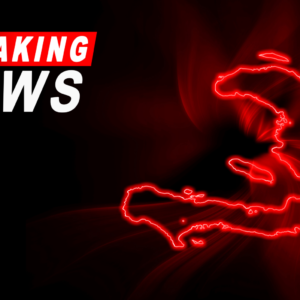“Securing the key ports of Port-au-Prince and Cap-Haitien should allow American rice exporters to better supply the Haitian people in 2024,” says Michael Klein, spokesperson for the United States Rice Federation. Agri-Pulse.
Kenya commits to bringing stability to Haiti, a hope for American rice producers, reports Agri-Pulse
Wednesday, October 11, 2023 ((rezonodwes.com))–U.S. rice farmers have high hopes for the United Nations plan to sanction the deployment of a Kenyan-led international force to restore stability to Haiti, which is the main foreign market for American rice.
After more than two years of near-anarchy in many parts of Haiti, Kenya’s U.N.-approved police force is likely to bring stability and order to the market, according to Federation spokesman Michael Klein. Rice from the United States. “Securing the key ports of Port-au-Prince and Cap-Haitien should allow U.S. rice exporters to better supply the Haitian people in 2024,” he told Agri-Pulse.
U.S. exports of husked rice, worth about $200 million annually, represent the most important food source for beleaguered Haitians. However, gang violence, which has increased since the assassination of President Jovenel Moïse two years ago, threatens to cut off supplies. American millers and Haitian importers are trying to adapt to this violence, but it is becoming increasingly difficult as gangs tighten their control over ports and steal truckloads of rice.
U.S. exporters and importers are changing their delivery routes and increasing their security spending. However, the gangs that rule Haiti are making it increasingly difficult to keep the country fed.
Christine Coupet Jacques, who lives and works in Haiti as an intermediary between American exporters and local importers, emphasizes: “Every Haitian consumes rice daily, and American rice is the most commonly available variety. American rice is part of the daily meals of every Haitian household. »
However, this situation could change. The port of the Haitian capital, Port-au-Prince, was once the main gateway for American rice, but American exporters, like Supreme Rice, have had to move much of their shipments to the more secure port of Cap-Haïtien.
Bobby Hanks, CEO of Louisiana-based Supreme Rice, explains: “We use (Port-au-Prince) for a very small amount. The risk is having to load the truck and transport it to the warehouse without it being stolen. So you reduce the risk by reducing the volume. »
This development has significantly limited distribution capacity to areas of the country that rely on U.S. rice shipments. Previously, Supreme sent truckloads of rice from Port-au-Prince to its warehouse in the southwestern city of Les Cayes, but this is no longer possible.
Hanks adds: “The road that connects Les Cayes to Port-au-Prince is totally controlled by the gangs, so we have essentially lost the ability to serve that market. Residents of the Les Cayes region must now go to Port-au-Prince to buy basic necessities. »
Furthermore, Haiti cannot feed itself. The country is largely dependent on imports. Haitian farmers produce rice, but not in sufficient quantities, even under the best conditions. Unfavorable weather conditions are weighing on the country’s rice farmers, but the Artibonite region, the main growing area, is affected by gang violence.
According to the United Nations, hundreds of gang-related kidnappings have taken place in Haiti this year, mainly in Artibonite.
The Artibonite occupies a large part of the country and lies between Port-au-Prince and Cap-Haïtien in the north, where most US rice shipments have been diverted.
If Port-au-Prince and Cap-Haitien also became too dangerous for shipping, people would risk starving, Hanks warns.
“It actually concerns me a lot,” he says. “This is above all a humanitarian crisis, and our main concern is the well-being of the Haitian people. We have been selling rice to this country for years. … If we can’t ship rice there, people may starve. That’s the primary concern, but there’s also a story to tell about the impact on American farms and their reliance on this market. »
For now, the United States continues to export rice to Haiti, but it is difficult to say how long this can last without a force capable of bringing peace and normalcy to the island.
Jacques says he has noticed that imports of most goods into Haiti have been cut in half over the past two years, but that does not apply to American rice.
Kenya now has the support of the UN Security Council for its proposed multinational security support mission, and former Kenyan Foreign Minister Alfred Mutua told BBC News the force could land in Haiti by January 1.
However, Mutua was demoted last week due, in part, to controversy surrounding Haiti’s police use plan.
It is still difficult to predict the long-term impact of the Kenyan Supreme Court’s decision this week to put the mission on hold at least until a hearing on October 24. Former Kenyan presidential candidate Ekuru Aukot, who initiated the complaint, said in a tweet that Haiti needs an “elected government, not an inexperienced police force to deal with gangsters over-armed.”
However, hope remains widespread that Kenya will succeed in “helping secure critical infrastructure and transit hubs such as the airport, ports, schools, hospitals and key intersections”, according to the UN.
It was Haitian Prime Minister Ariel Henry who initially appealed to the international community for help against the gangs, made up of 162 armed groups with 3,000 armed members. Isabel Salvador, Special Representative of the UN Secretary-General in Haiti, declared at the UN that “the country will not emerge from the current security situation without strong international support for the Haitian national police.”
However, the Haitian population remains divided, according to Jacques. There is a nationalist attitude against intervention, but there are also people “terrorized by the kidnappings, murders and rapes, and they will accept any help.”





